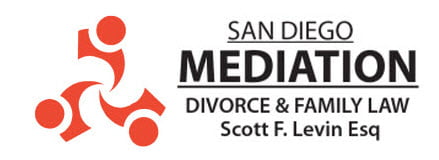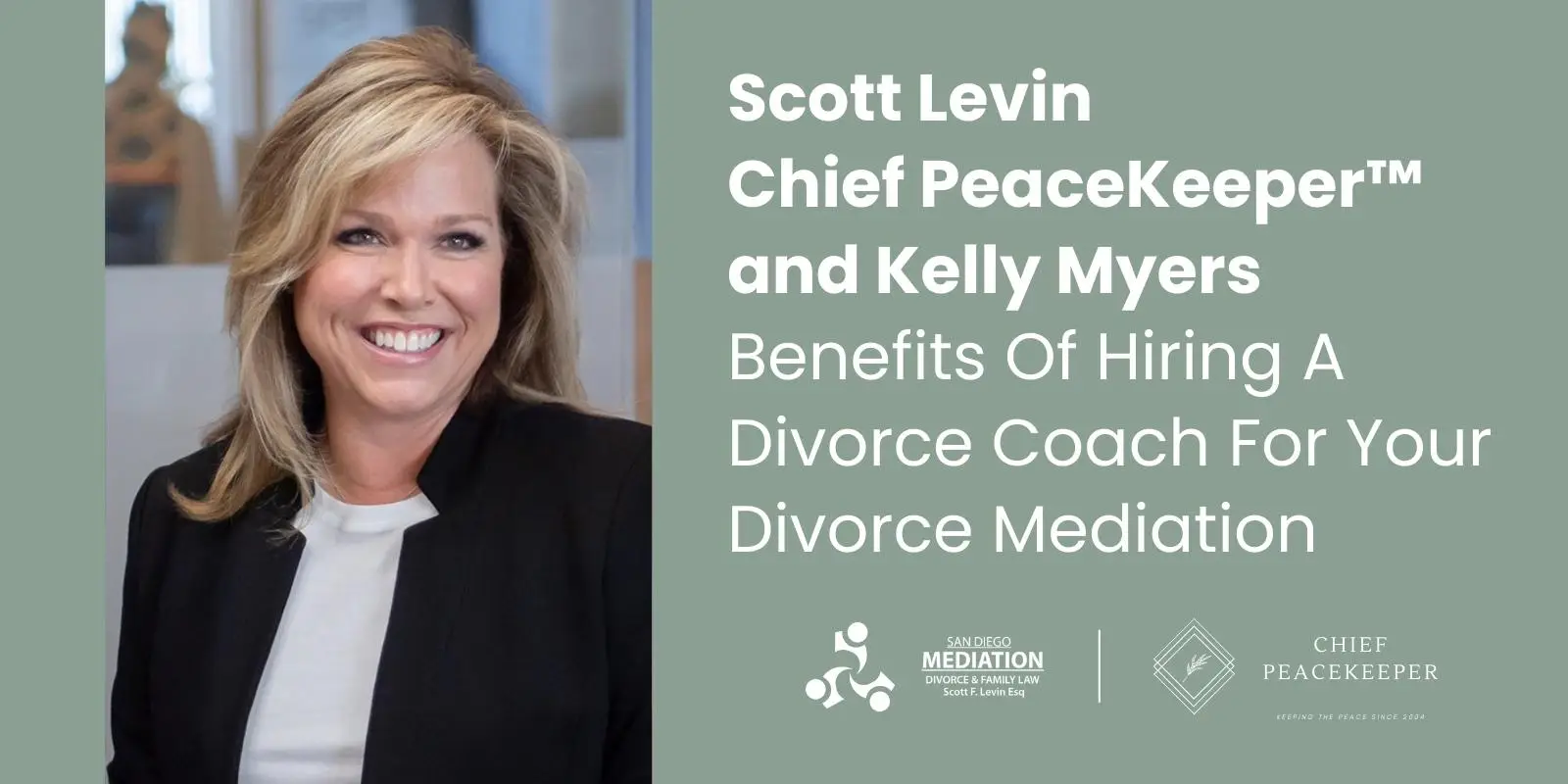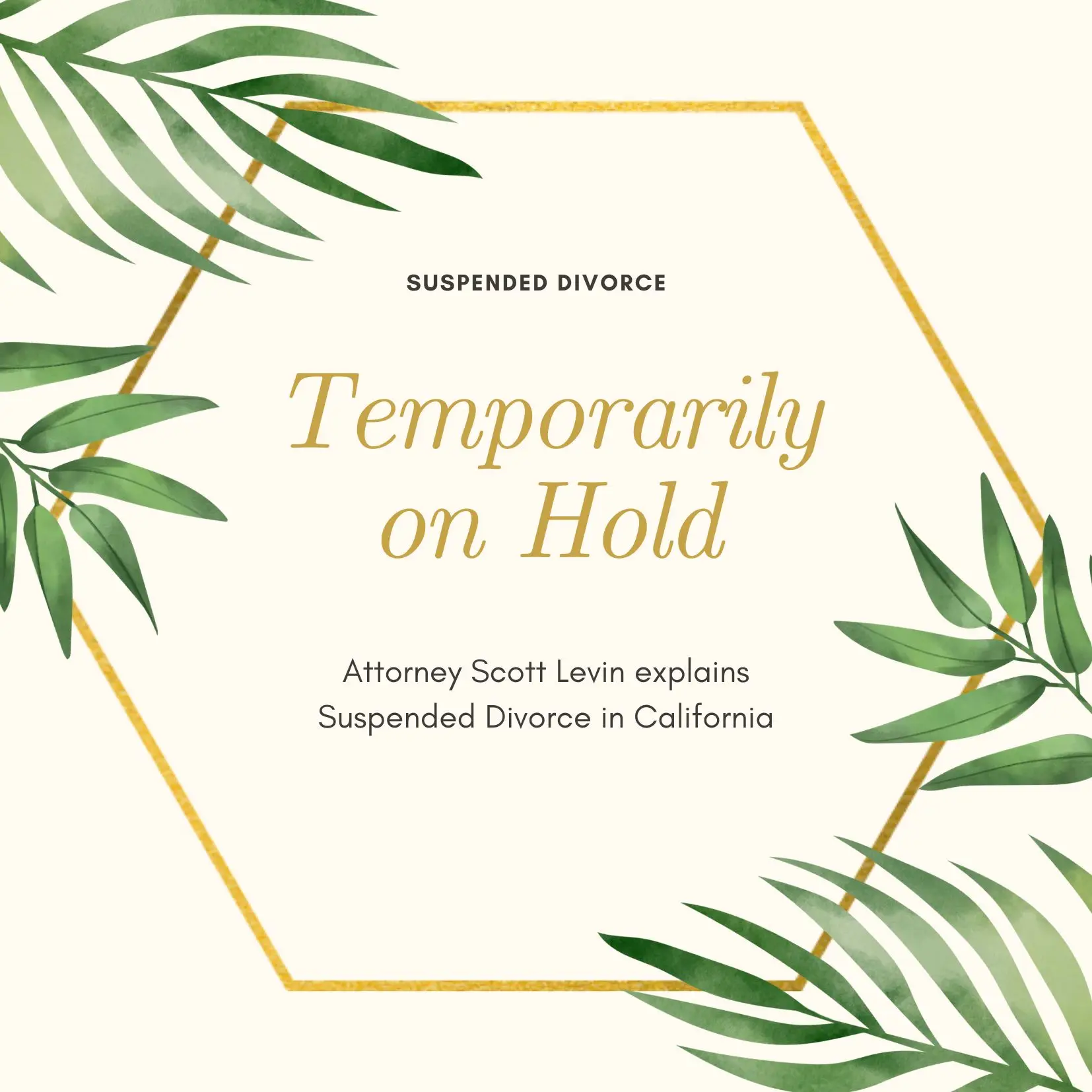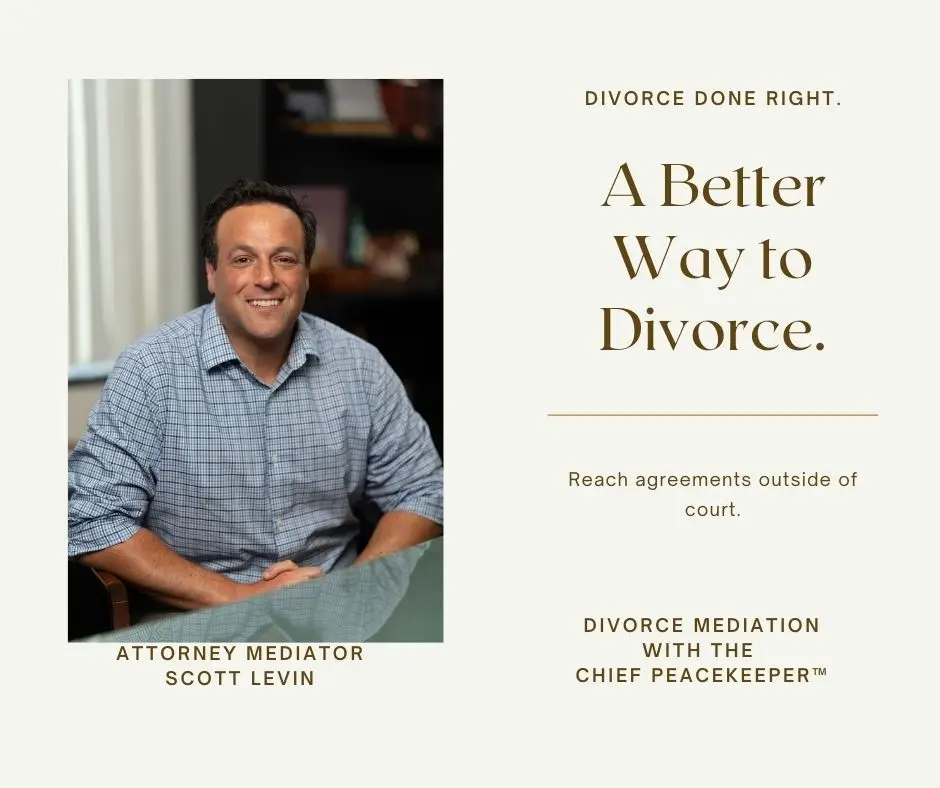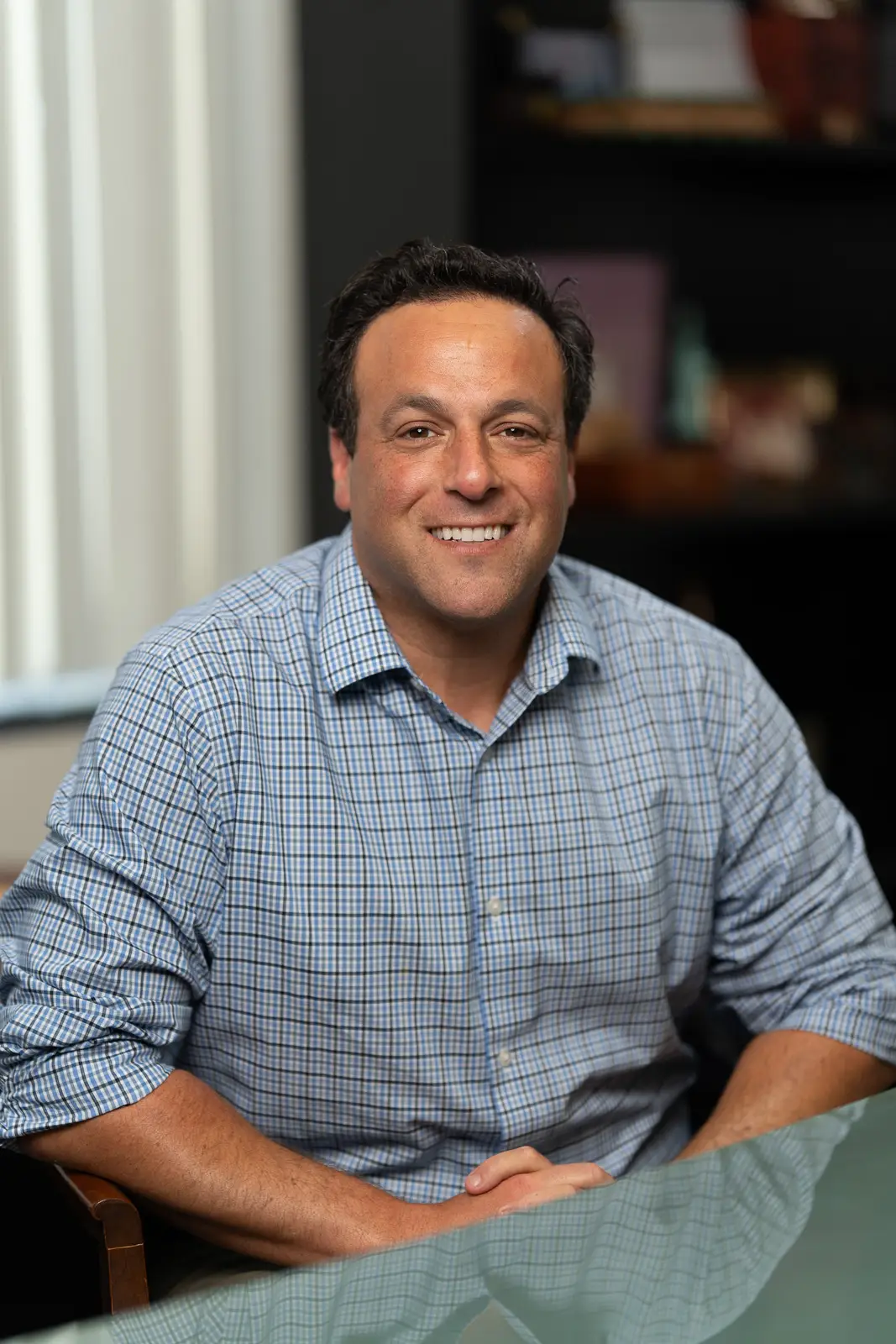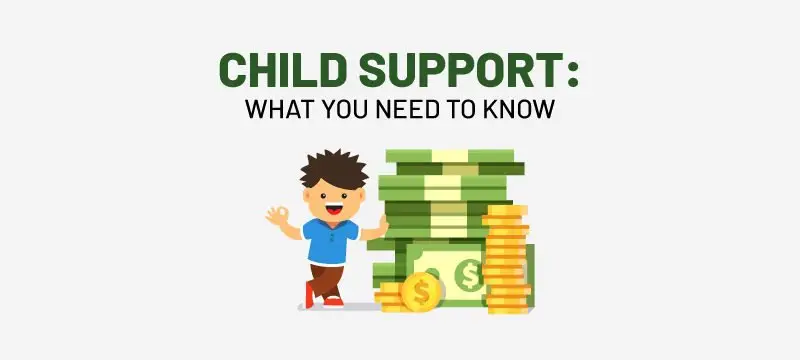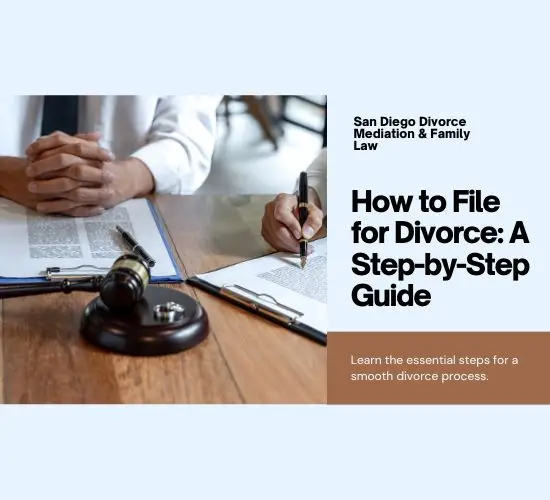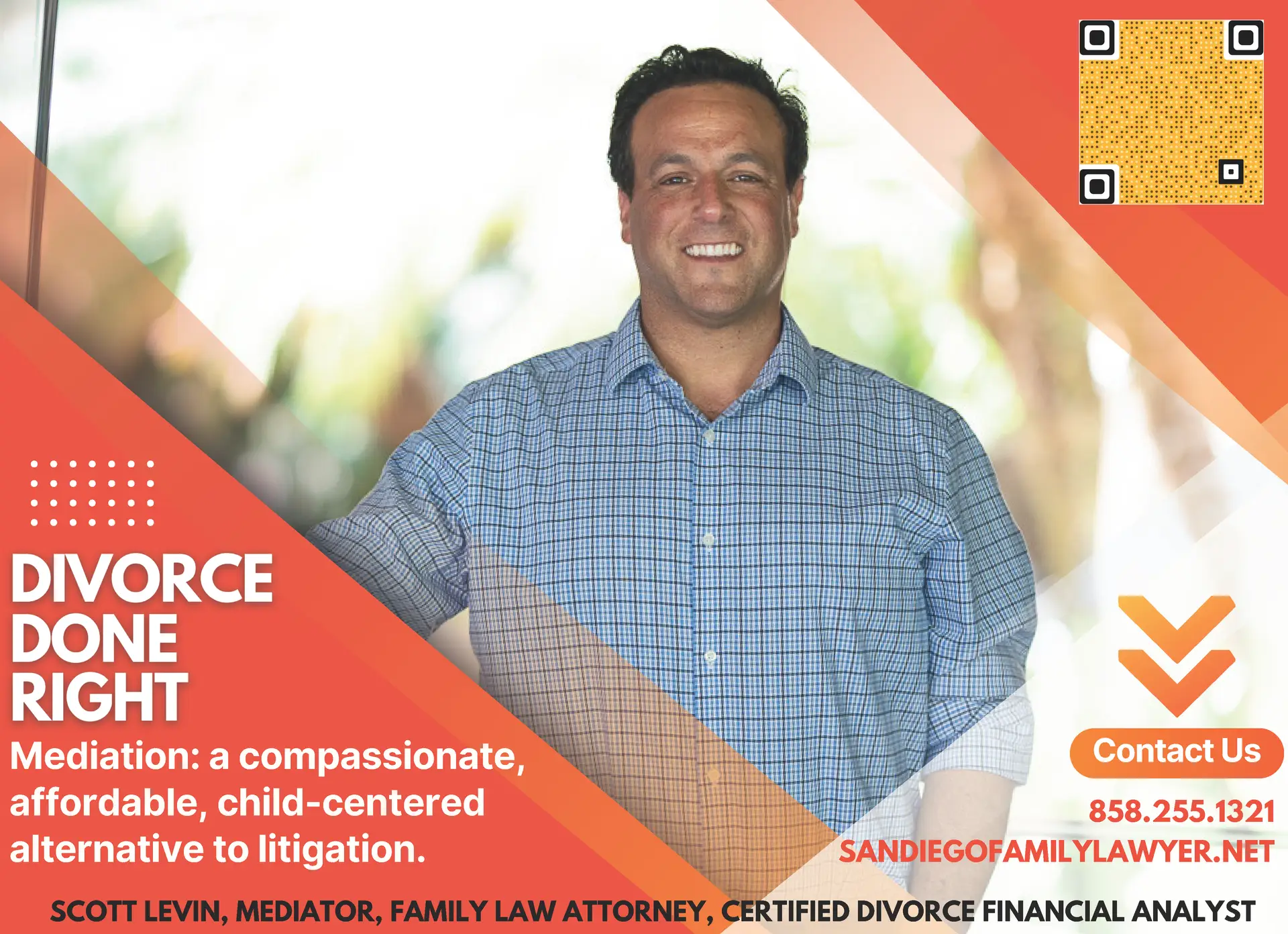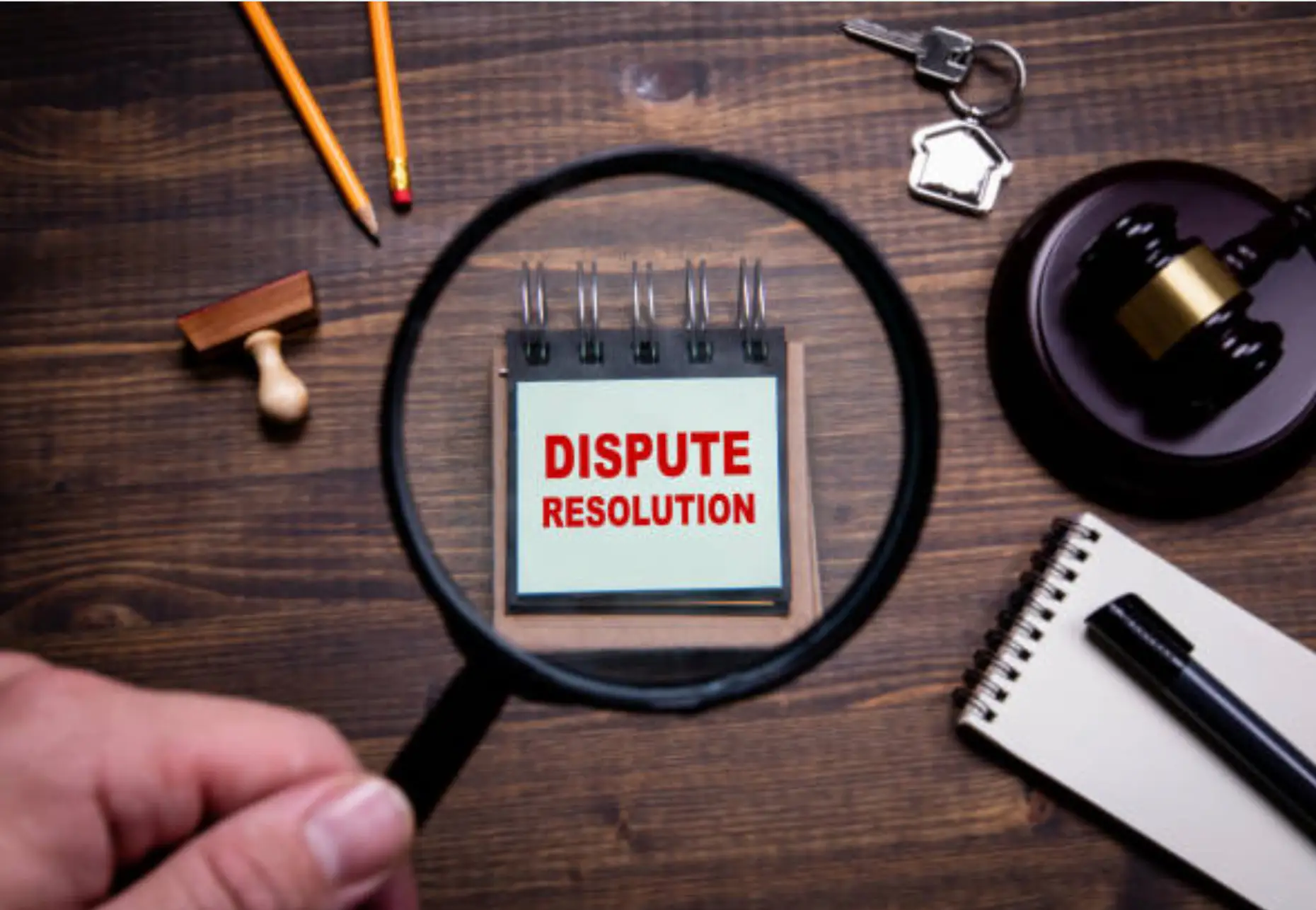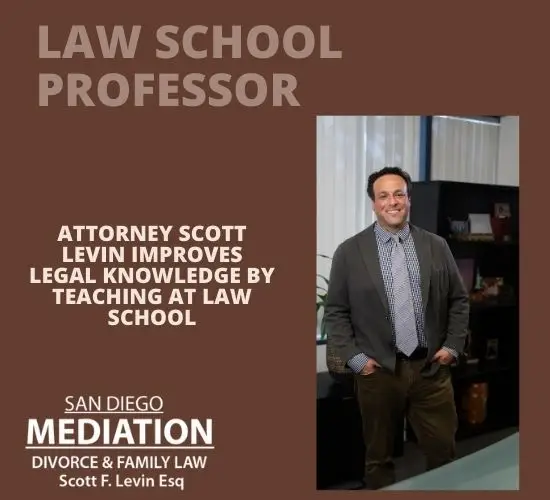Kelly Myers is sharing about her personal path into divorce coaching, her training and skills, and how she helps guide clients through the process peacefully.
Chief PeaceKeeper™ Scott Levin 0:02
How are you doing? This is Scott Levin. I am the founding partner at San Diego Divorce Mediation and family law. And I have a dear friend here with me today. Miss Kelly Meyers. She is with your divorce advocate. How are you doing? Kelly? I’m good. How are you? Oh, I’m doing a wonderful thing. I have a couple of kids around here. So hopefully we can get this in without too much disruption. But have you ever seen that video where the guy like is in the? Yes. Valerie, me? Hopefully, we go viral? That’d be. Exactly, exactly. Oh, I’m Kelly mine. So I’ve always preferred when I’m referring clients to you, I introduce you as a divorce coach, is that the right title for you?
Kelly Myers 0:53
It definitely is. I am a coach. I’m a trained coach. However, I actually, think when I tell people about what I do, I talk about more advocacy, I really feel like I’m a divorce advocate. But in the world in which I work divorce coach is a title that more people recognize.
Chief PeaceKeeper™ Scott Levin 1:15
And when do like what sort of when would you recommend that someone might be in need of your services, whether they know about it or not,
Kelly Myers 1:25
I would say immediately, even before they decide sometimes to tell their spouse that they want a divorce because there’s a lot of preparation that sometimes needs to go into the process. I also recommend that people really are clear on how they want to present this to their spouse because how you start and how you present your desire to want a divorce can sometimes set the stage for how the how things, you know, progress from there.
Chief PeaceKeeper™ Scott Levin 1:57
Oh, I couldn’t agree with you more. I think that there’s a book that I love. I don’t know, if you’ve read it, it’s how to get divorced without ruining your life. But not after check that out really well. It’s, uh, I, I refer to it, like still, just like open it up. It’s by an attorney who went, who transitioned into mediation just like me. So I might be a little biased. I feel like I could have written this book if I was 20 years, you know, older. I mean, it really is. It just has a lot of gifts in it. But one of the things that they talk about in there is how to present the issues because a lot of times be a person that asks for the divorce or brings it up their spouses literally floored. And the other person is surprised by that. Because like they aren’t, weren’t you feeling the same things? I’m feeling? Well, no, that’s oftentimes exactly the opposite of what happens. Right? And, yeah, go on.
Kelly Myers 3:04
Yeah. So you know, really being clear as to what your feelings are, and how you can present this in the most empathetic and kind way. And really, as a coach, I really get people to be thinking about so often people know, right, how their spouse may react if they really sit and think about it. And so I try to ask the questions that really allows them to do some, some soul searching themselves to, to come up with the answer of how do you think they’re really going to react, and usually, they know. And then through that process, because they know their spouse the best, they usually can come up with the best way to present this information doesn’t always go as planned. But you know, the hope is with preparation, you can have a better outcome.
Chief PeaceKeeper™ Scott Levin 3:55
And do you do when you’re first starting to work with someone, do you spend a lot of time focusing on the past and the relationship itself? Or are you more like future-focused,
Kelly Myers 4:08
definitely more future-focused, you know, one of the differentiation between coaching and therapy, his coaches really deal with the future, the present, and the future, and therapy very often not always, you know, kind of deals with the past and more emotional issues that that as a coach I’m really not trained to do so I really try to avoid that. What I tell people is, you know, if you’re getting divorced, you’re really closing a chapter and you’re beginning a new chapter in your life. And so all the time that you spend in the old chapter, you’re wasting time, you know, and not able to write your new chapter. So I really try to get people to focus on their future and what they want there.
Chief PeaceKeeper™ Scott Levin 4:55
Well, I think that’s why we work so well together, at least our synergy between The clients that I’ve referred and the clients that you have referred because, um, you know, I, one of the things that I do in mediation is, is we’re future-focused, right, because we know, you know, you’re in a mediators office, we’ve filed your petition, which means we’ve opened up your divorce case. So we know, all the reasons that we’ve gotten to this point, there’s just not a lot of purposes or any real objective to rehashing them all in my office. And, and, and not taking that time to spend, you know, negotiating and in figuring out your next paths. So I think that you know, that’s kind of why we’ve always dived really well.
Kelly Myers 5:45
Yeah. And if I can add to that, I think, you know, part of the problem when you go through a divorce is it is an incredibly emotional, you know, experience in situation, right. And, but as you always say, Scott, it really is, in many ways, a business transaction, right, you have to take the emotion out of it, and you have to the husband and wife have to come together and fight the problem of divorce, when you, you’ve said that before, and I just thought it was brilliant because it really is what has to happen. I think often in divorce, people are looking for validation that, you know, their husband was nice, or the wife didn’t do what she should have done or whatever, whatever the issue is. And I think both you and I try to get our clients to understand that that doesn’t matter. You know, particularly in the state of California, it doesn’t matter. We just all need to move forward and figure out how do we tackle this problem of divorce while trying to keep you know, everybody, everybody emotionally and mentally intact, particularly if you have children, right? That adds a whole new wrinkle, to the whole process.
Chief PeaceKeeper™ Scott Levin 6:54
And one of the things I actually read last night, not in anything related to divorce, I actually was reading it, it was about one of the guys who started one of the big movie studios. I got one of the little kids behind me, sorry. Hold on, I’ll go away, I’m so big that I take up the whole space. So you can see that what they were saying is they never really liked negotiating with agents for the actors, because when they were going to be filming, the agents weren’t going to be there as intermediaries to communicate between the director and the film production and the actor, they were going to need to be a direct communication at some point. And that’s why I often think that mediation is not every case, but mediation can set you up for success. And that because you don’t the goal is not the goal for getting through your divorce is to have an agreement that is workable so that you never again have to interact with the legal system again, because we know that elongates that the pain, and it really can cost a lot of money. And so the mediation process of having to learn how to speak with this person, during the separation, you know, can set can oftentimes set people up for being able to communicate, you know, post-divorce, when their lawyers are not going to be involved anymore, if they had gone really
Kelly Myers 8:32
well. And I would say you know, even another issue to consider is when if you choose to go the non-mediation route, you’re each hiring attorneys. And they may be really good attorneys, but they’re paid to represent you and to kind of, in some ways go to battle for you. Right? And so is that just when you look at that setup alone, it doesn’t create an opportunity for the two people who are really trying to construct this agreement to be able to talk to each other. It’s almost like, you know, we always talk about social media, right, or, or email and text that you can’t get the gist of what somebody is really trying to say. And I could send a text and 10 different people can interpret it differently, right? Well, when you’re filtering communication through attorneys, again, if you’re not really getting the gist of what the other person is trying to say or do it’s been filtered by a lot of different, you know, things from the attorneys perspective, how bad attorney writes things it is there’s just a number of different issues there. And so, when the reality of it is there may be situations in which the to a couple of you know, the spouses agree, but because of how the information is being filtered, it’s creating a battle that doesn’t need to be there. Now, again, as you’ve said, there are definitely issues, you know, situations in which that’s the route people need to go.
Chief PeaceKeeper™ Scott Levin 10:08
Absolutely.
Kelly Myers 10:08
But if you can avoid it, working with a mediator, you know, hopefully working with a divorce coach,
Chief PeaceKeeper™ Scott Levin 10:15
I think, is that you have to, you have to surround yourself with a team if you’re gonna go to mediation, calm, you can’t, you can’t give in to every impulse to fight or suckered into, you know, statements. You know, because you’re not set up, you know, there’s, there’s no legal outlet for you to fight it out, you know, during, you have to stay calm so that you can negotiate calmly, and focus on your future. So that’s why so many of our mediations involve the coaching element because both parties need to really try to take a breath, they need to employ the tricks of the trade, and how to communicate without that anger erupting.
Kelly Myers 11:01
Exactly, you know, one of the things that I work with my clients on is, is non-provocative communication, really understanding how to communicate in a way that you’re not listening, eliciting emotion, negative emotion from your spouse, right? Because that’s not going to get you anywhere other than, you know, more unproductive communication, which, again, who wins in that, right? So it’s really getting, I work hard to try to get my clients to really think about what they’re going to say, not only verbally, but also when they have to communicate in writing. So make sure that you try as much as possible to take emotional accusations, you know, blaming out of, you know, those types of words out of their communication. So that it really is you’re just dealing with the facts. And I know you work hard to do that with your clients to really try and just deal with the facts that are on the table.
Chief PeaceKeeper™ Scott Levin 12:00
Exactly. It’s really important. It’s really important. Well, Kelly, I think I think this is good. I think we you’ve really explained Well, um, where can people reach you read you find you on the web? What’s your information?
Kelly Myers 12:16
Yeah, on Facebook, at your divorce advocate. And I also have a website at again, your divorce advocate calm. I can also be reached by phone at 8582760 cheese. And now I’m going to forget my number
Chief PeaceKeeper™ Scott Levin 12:35
our divorce advocate calm. Well, no, I think I really just encourage everybody to look into a divorce coach, you know, you’re not going to break the bank, engaging a divorce coach. It’s not something that it’s going to cost you what it’s going to cost you legal fees. It’s just not that sort of expense. And the benefits are tremendous. So I appreciate you. I appreciate everyone if you have been hearing something right to my left here. This is the culprit. Hi, buddy. Oh, but thank you so much, Kelly. Thank you soon yes
Transcribed by https://otter.ai
